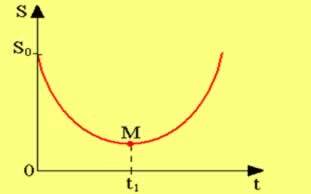At some time in our lives we have experienced a constipation crisis, and because we know the episode, we know that it can be quite unpleasant to deal with abdominal pain, irritation and difficulty going to the bathroom.
As much as it's not a serious situation, it can come from several factors such as low water intake or improper consumption of some foods. And this can happen to your pet too! If you want to know what to do when your pet is constipated, then keep reading!
see more
There are some dog breeds considered perfect for people…
Is it normal for cats to sleep on their owners feet? understand this behavior
Because it's an uncomfortable situation, it's easy to tell if your little animal is going through an intestinal crisis. In this way, find out what to do in these cases, follow the reading and check out the reasons that can lead the dog to develop constipation, how to treat it and how to prevent it.
What causes constipation?
Just as it happens in the human body, constipation in dogs is due to the malfunction of the intestinal tract. This leads to dry stools, causing difficulties and pain when evacuating.
According to experts, the most common causes of constipation in animals are: chronic pain – usually orthopedic, tumors in the rectum or colon, stenosis (narrowing) of the pelvic canal, as well as poor water intake and fibers.
Therefore, this intestinal dysfunction can arise from a lifestyle that is not very suitable as a symptom of a more serious condition. With that, it's very important to visit a veterinary doctor to make sure everything is ok with your pet's health.
Symptoms of Constipation:
According to experts, one of the symptoms of constipation in dogs is the difficulty that the pet has when evacuating, staying many minutes in the same position, as well as "crying" when trying to defecate. Some animals can also spend days without being able to poop, either because of pain or impossibility.
And if the days go by without the puppy being able to defecate properly, the clinical signs can aggravate, so that the pet can become dehydrated, stop eating and present a lot of pain abdominal.
How to treat constipation?
As soon as you notice that your pet is showing signs of constipation, the ideal thing is to look for a veterinary doctor. This is very important because, as we listed above, it could be a symptom of a more serious condition.
It is also important to assess the cause of constipation. This is important because if you give your dog a laxative and the stool outlet is obstructed, the animal's intestine may rupture. For this reason, it is important to never give home remedies that promise to "loosen" your dog's feces.
Therefore, the treatment of this intestinal crisis will depend on its cause. The veterinarian will make an entire assessment of the patient, and tests may be carried out to help in the diagnostic process. In addition, the condition of the animal will also influence when determining the most appropriate treatment.
In more severe cases, there may be a need for surgical interventions, but in milder cases, a laxative may do the trick. Be sure to consult an expert.
Preventing Constipation:
As with humans, an inappropriate diet and a sedentary lifestyle can contribute to constipation. Thus, a good way to prevent constipation in pets is to promote a routine of physical activity.
Daily walks, routine games and environmental enrichment are great alternatives in preventing intestinal crises. However, a balanced, fiber-rich diet is essential to maintain your pet's health. It's also important to keep an eye on your dog's water intake.
It is worth remembering that constipation can also be a symptom of more serious diseases, such as tumors and orthopedic problems. Another effective form of prevention is to periodically take the pet to the veterinarian.
Did you like this content and would you like to see more content like this? Enough click here!



